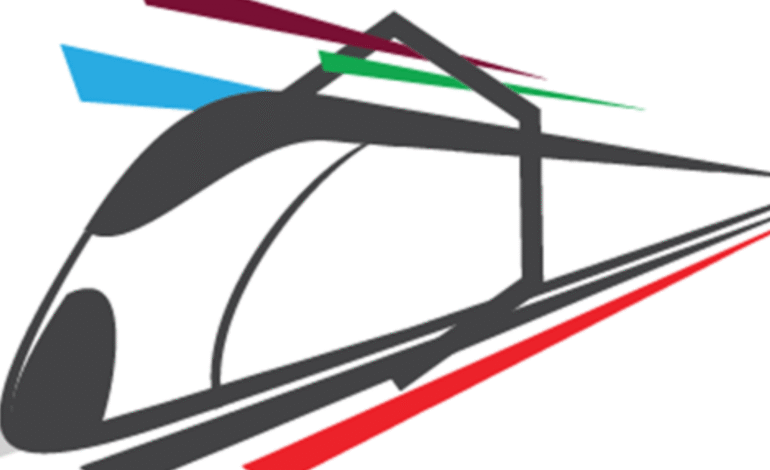GCC Railway 2026 Sparks a New Era of Unmatched Trade and Travel in the Gulf

The Gulf Cooperation Council (GCC), comprising six influential nations Saudi Arabia, UAE, Oman, Qatar, Kuwait, and Bahrain is embarking on an ambitious journey to reshape transportation and trade across the region. With an expansive railway network expected to span 2,177 kilometers, the GCC Railway Project is forecasted to become operational in significant segments by 2026, with full completion expected by 2030. This cross-border transport initiative is set to drive regional connectivity, economic growth, and sustainability, transforming how people and goods move across the Arabian Peninsula.
Kuwait’s Rail Connection: Nuwaiseeb to Al-Shadadiya
Kuwait’s major contribution to the GCC Railway involves the construction of a 111 km line from Nuwaiseeb, near the southern border, to Al-Shadadiya near Kuwait City. With an $8 million design contract awarded to Turkish consultancy Proyapi in April 2025, the project aims to link Kuwait with Saudi Arabia and integrate with the broader GCC railway infrastructure. It is designed to serve both passenger and freight demands, helping Kuwait increase its transportation efficiency and cross-border logistics capability.
Saudi Arabia’s Strategic Routes: Landbridge and Jubail-Dammam Projects
Saudi Arabia plays a central role in the GCC railway expansion. The Landbridge Project a 950 km line connecting Jeddah on the Red Sea coast to Riyadh forms the backbone of the national and regional network. Scheduled for completion by 2026, this route will directly link the Kingdom’s major commercial hubs and integrate with the GCC system.
Meanwhile, the Jubail-Dammam freight line, launched in April 2024, has significantly enhanced industrial connectivity between the two cities. With freight operations already underway, the line contributes to Saudi Arabia’s diversification goals and boosts logistics efficiency across its Eastern region.
UAE’s Pioneering Projects: Etihad Rail and High-Speed Links
The UAE has been at the forefront of regional rail development with its flagship Etihad Rail project. Spanning approximately 1,200 km, the network links all seven emirates from Fujairah in the east to Ghuweifat on the Saudi border. This freight and passenger railway is designed to facilitate seamless mobility and economic integration across the country and the GCC.
A landmark high-speed rail link between Abu Dhabi and Dubai is in progress. With expected speeds of up to 350 km/h, the journey between the two cities will be slashed to just 30 minutes once operational. The project is expected to be completed by 2030 and will redefine daily commuting and tourism between the UAE’s largest cities.
Additionally, the UAE is building a 303 km rail link with Oman, reinforcing cross-border collaboration. The line will align with Etihad Rail, offering streamlined freight and passenger movement between the two countries, and boosting bilateral trade and cultural ties.
Oman’s Hafeet Rail Project Enhancing Connectivity
Oman’s Hafeet Rail Project is central to the country’s role in the GCC Railway plan. Designed to connect Oman with the UAE, the project strengthens cross-border transportation infrastructure and aligns Oman with the GCC’s shared vision of a unified rail corridor. Integrated with the UAE’s Etihad Rail network, it will enhance Oman’s trade accessibility and economic resilience.
Qatar’s Integration Through National and Regional Networks
Qatar Rail is actively working on connecting its domestic metro and rail systems with the broader GCC Railway. The integration of the Doha Metro with GCC infrastructure will open doors for seamless cross-border transportation. This will improve trade, logistics, and tourism between Qatar and its neighbors and cement the country’s position as a strategic regional player.
Bahrain’s Link with Saudi Arabia Advancing Mobility
Bahrain’s rail development plans center on establishing a link with Saudi Arabia. This connection, once completed, will facilitate easier cross-border movement of both passengers and goods, and significantly benefit daily commuters and tourists. As Bahrain joins the unified rail corridor, the kingdom is set to experience enhanced trade flows and mobility.
Driving Regional Impact: Economic, Social, and Environmental
The GCC Railway Project is a game changer in multiple sectors. Its implications go far beyond infrastructure development:
Enhanced Regional Connectivity The integrated railway network will remove transport bottlenecks and allow for faster, more cost-effective movement across borders. Businesses can expand operations across the GCC more smoothly, while citizens and tourists can travel with greater ease.
Stimulating Economic Growth The GCC Railway will improve trade efficiency and reduce delivery timelines. Industries such as logistics, retail, manufacturing, and construction will benefit from smoother supply chains and improved distribution networks, ultimately strengthening the Gulf’s non-oil economic foundations.
Promoting Green Mobility and Reducing Emissions As an alternative to road transport, rail networks significantly reduce carbon footprints. With sustainability at the core of national visions like the UAE’s Net Zero 2050 or Saudi Arabia’s Vision 2030, the GCC Railway Project is aligned with the region’s environmental goals. The shift to rail will cut down on traffic congestion and support long-term ecological balance.
Boosting Tourism and Cultural Exchange With easier inter-city and cross-border access, the railway network will bolster tourism across the Gulf. Destinations in Dubai, Abu Dhabi, Muscat, Doha, and Manama will become more accessible to regional and international travelers, supporting cultural exchange and economic diversification.
2030 Vision: Connecting the Gulf into a Unified Rail Economy
As of 2025, each GCC nation is progressing steadily on its rail commitments, with crucial segments nearing completion by 2026. The broader vision for full-scale connectivity remains focused on 2030. This project, decades in the making, is a symbol of Gulf unity and shared prosperity. By creating a seamless rail corridor, the GCC is not only transforming mobility but also setting the stage for a more economically integrated and sustainable future.








1 Comment
[…] implications for the broader Indo-Pacific and Middle Eastern maritime landscape. The UAE and other Gulf Cooperation Council (GCC) countries have been strengthening maritime security cooperation with India, given shared concerns […]
Comments are closed.